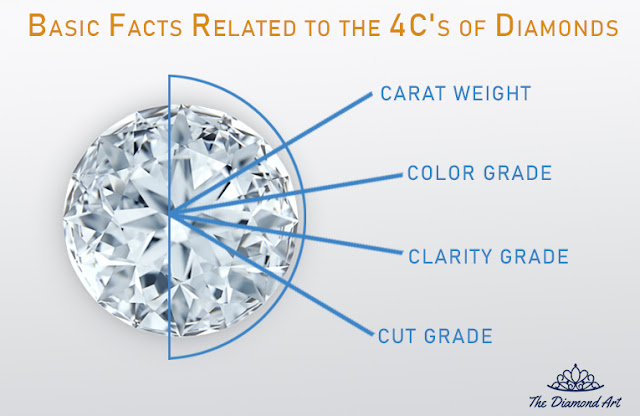 |
| The Best Engagement Rings |
When it comes to sparkle, there is no substitute for
diamonds. Though it may vary from one diamond to the other, each diamond looks
strikingly beautiful in its own way. However, other than sparkle, there are
also certain other qualities or features that determine the price and charm of
diamonds.
The beauty and structure of diamonds are based on the 4 C’s
– cut, clarity, color and carat. Experienced jewelers at gemological
associations evaluate a piece of diamond on these parameters. Subsequently, a
certificate is issued on its quality based on the assessment of the
aforementioned features.
The certificates issued by the GIA and the AGS, the two most
prominent gem laboratories, are considered the most transparent usually
accepted worldwide as the standard certificate for a piece of diamond in the best engagement rings.
An important point to remember here is that the certificate
provided by a gem laboratory, which consists of the report of the 4C’s of a
given piece of diamond, does not guarantee whether it is of the highest quality
or an inferior one. However, it serves as a document to help you determine
whether or not the claims made by a seller while selling a diamond ring is true
or not. It also brings the flaws related to a diamond to the notice of a buyer
at the time of buying a piece.
The details of the 4C’s are discussed below.
Cut
The cut of a diamond refers to a wide array of its
properties: brilliance, angles, symmetrical facets, proportions, scintillation,
fire and finishing details. These attributes determine the quality of sparkle
or overall appearance of a diamond.
Generally, the GIA grades a diamond in the following grades:
- Ideal
- Excellent
- Very good
- Good
- Fair
- Poor
Based on the shape of a diamond, the first two grades
indicate angles and proportions for maximising fire and brilliance.
You may find variations in cuts between two or more diamonds
or from one diamond cutter to another. While sometimes a cutter may cut a
diamond deep to achieve more carat weight or leave it too shallow to ensure
optimum reflection of light. Also, they may cut a diamond with the objective to
conceal the inclusions or to improve the clarity to enhance its sparkle. Thus,
it can be concluded that it is essential to examine this aspect of diamond to
ensure that the sparkle of a purchased diamond is up to the mark.
Color
The color of a diamond is graded depending on how colorless
it is from grades D-Z. D indicates the highest degree of colorlessness of a
diamond, whereas Z reflects the fact that a diamond has noticeable yellow or brown
tint. The former is more expensive than the latter.
At the time of buying a piece of diamond, it is also
important to pay attention to the inclusions. Also, you should make sure that a
piece of diamond is cut to prevent the interference of the reflection of light.
Clarity
Diamonds with a higher clarity come across without any
blemish. As a result, it looks clean and more soothing to the eyes with maximum
appeal. The GIA grades this vital attribute of diamonds using the following
criteria:
- Flawless (FL)
- Internally Flawless (IF)
- Very Very Slightly Included 1 (VVS1)
- Very Very Slightly Included 2 (VVS2)
- Very Slightly Included 1 (VS1)
- Very Slightly Included 2 (VS2)
- Slightly Included 1 (Sl1)
- Slightly Included 2 (Sl2)
- Inclusions 1 (l1)
- Inclusions 2 (l2)
For maximum clarity, it is important to ensure that a
diamond is eye clean. Plus, you should also make sure that the diamond bought
by you does not interfere with light reflection.
Carat
Out of misconception or misinformation, most shoppers tend
to associate carat weight with the size of a diamond. In reality, it indicates
the weight of a diamond. It does not tell how large the size of a given piece
of diamond on an engagement diamond ring for women or men is. The cut and shape of a diamond determine its carat.
Though one or more attributes of a diamond may have a
bearing on its appearance or sparkle, it is a good idea to choose a piece
taking all the attributes into consideration.
No comments:
Post a Comment